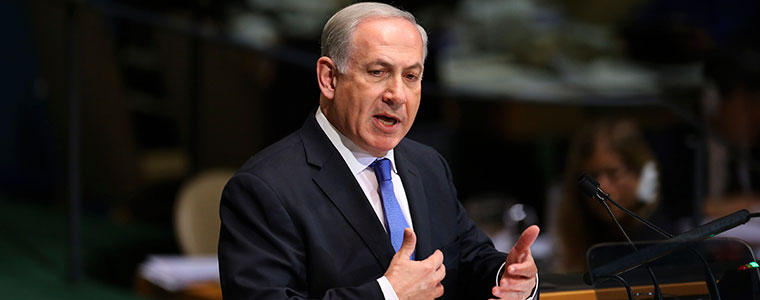
On Monday night, Israelis went to bed with a lame duck Knesset, set to dissolve in advance of early elections in September. They awoke Tuesday morning to an overnight unity deal between Prime Minister Benjamin Netanyahu of the ruling Likud party, and Shaul Mofaz, the new leader of Likud’s main rival, Kadima. For the next 18 months--allowing for the fact that in Israeli politics something can always change--Netanyahu will preside over one of the broadest coalition governments in the history of Israel, encompassing fully 94 of the 120 members of the Knesset.
At its core, the new unity government is a decision born of domestic considerations. For Mofaz and Kadima, the deal casts a life preserver to a party that stood to lose as many as half its seats in September’s election. For Netanyahu’s part, while he was projected to fare well in the early election, by widening his coalition he has bought both time and space to marginalize both the dissenters within Likud (over the composition of a parliamentary election slate) and certain right-wing parties in the current coalition who threaten to bring down the government over narrow interests. Meanwhile, a Labor led opposition drifts in the deal’s wake, now severely diminished in size and relevance.
In a press conference laying out a coalition agenda, “promoting a responsible peace process” was featured last on Netanyahu’s stated list of priorities. Peace with the Palestinians came after ending draft exemptions for religious students, reforming the political system, and fixing the economy. Nevertheless, Netanyahu now has greater room to maneuver generally. His new coalition partner is Israel’s largest centrist party, shifting the overall composition of the government back toward the middle, and the peace process could stand to benefit.
It has been barely six weeks since Mofaz ousted Tzipi Livni as leader of Kadima. During that time, Mofaz has criticized what he characterizes as Netanyahu’s preoccupation with Iran—a distraction, in Mofaz’s view, from the more pressing national security threat of a protracted conflict with the Palestinians. At Tuesday’s press conference, Mofaz—a former IDF chief of staff and defense minister—repeated his long-held view that Israel should push for an interim agreement on borders and security with the Palestinians while pursuing a final deal. Netanyahu appeared to demur, suggesting there is yet an uphill climb to common ground between the two men on the issue. Yet Mofaz's inclination toward territorial compromise flies in the face of views held by many on the far right within the preexisting coalition as well as within Likud itself. Danny Danon, for example, a Likud member of the Knesset and settler advocate, characterized the deal as a move that “spells trouble for the Jewish communities of Judea and Samaria and further moves us away from the traditional values of the Likud upon which we were elected.” Now, sitting astride an expanded political bloc, Netanyahu is in a position to take a more centrist stance on the peace process without facing a functional veto from his right -- if that is what he wishes to do.
Of course, the elephant in the room is Iran – strikingly absent from Netanyahu’s list of four priorities. Mofaz, Iranian by birth, holds strong defense and national security credentials and has previously voiced opposition to the idea of a near-term and unilateral attack on Iran. His entrance into the coalition could therefore signal an ambivalent Iran policy on the part of Netanyahu who may welcome the cover provided by Mofaz should he choose a non-military option. But it cuts both ways. With Mofaz as deputy prime minister, the strongest most credible voice of caution against a military strike on Iran has been brought out of the opposition and into the fold. Should a government decision be made to go after Iran’s nuclear capabilities, it would now be a decision carrying the imprimatur of a strongly united Israeli polity.
The U.S. and broader international community would be wise to consider the possibility that the sudden expansion of the coalition signals a closing of ranks in advance of some bold domestic but also foreign policy decisions.
This is a domestically-driven deal but nonetheless one that could have pivotal implications for regional peace.



